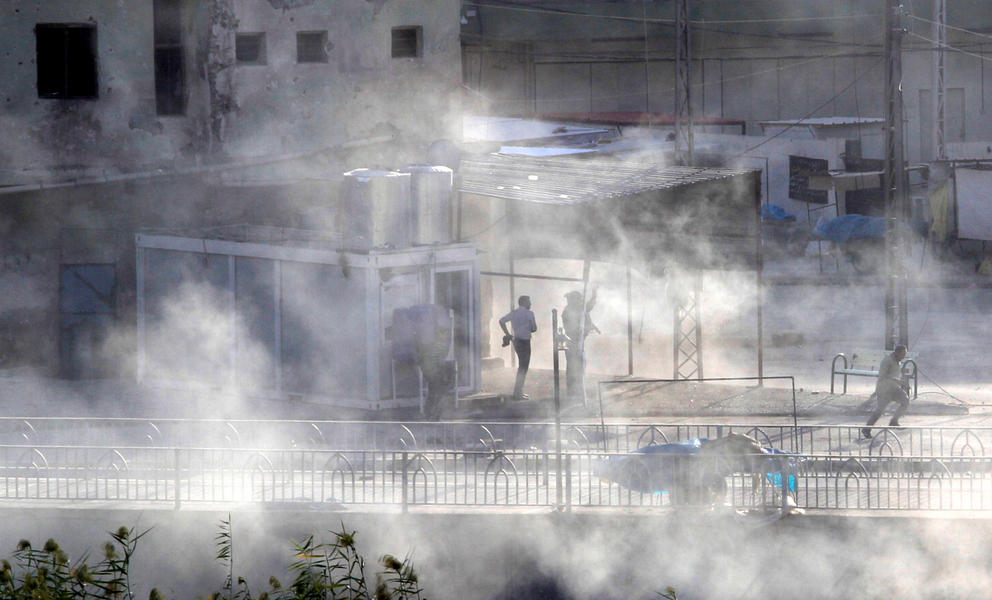
IRBIL, Iraq — Facing a broad offensive from Iraqi and Kurdish troops, the Islamic State has defended villages around Mosul with its signature tactics of suicide car attacks and roadside bombs. But on Friday, it attacked the strategic oil city of Kirkuk, far to the east, in the manner of a conventional army.
Dozens of uniformed Islamic State fighters, some of whom were believed to be part of sleeper cells and others who drove into the city in vehicles, assaulted Kirkuk, setting off gun battles for hours in the heart of the city that lasted from dawn and into the night.
Imams shut down all mosques in the city, canceling Friday prayers, as the city was turned into an urban battle zone that was live-streamed for much of the day by Kurdish news outlets.
The battle scenes and the sound of automatic gunfire inside the city were reminiscent of the Islamic State’s brazen march across northern Iraq two years ago, when Mosul and other cities were first seized by the group.
The group’s sudden counterattack on Friday morning also involved multiple suicide attacks on police positions inside the city, and gunmen later took up positions in a mosque, a school, a hotel, and on top of other buildings. The government quickly instituted a curfew, ordering civilians to shelter indoors.
A number of the gunmen, presumably after exhausting their supply of ammunition, set off suicide belts.
By Friday evening, with fighting still continuing, local officials estimated that 40 people had been killed, 30 of them members of the local security forces. Among the dead was reporter, Ahmet Herceroglu of Turkmeneli TV, who was killed by a sniper.
Civilians grabbed their guns and joined the fight, but the new threat was felt far beyond Kirkuk.
Fearing that the Islamic State may continue to mount counterattacks in cities other than Mosul, officials announced a curfew in Tikrit, which fell in the initial rush by the militants in 2014 and was taken back last year.
The attack on Kirkuk — a resource-rich city that has been under the Iraqi Kurds’ control for more than two years — diverted attention, at least for a day, from the five-day offensive on Mosul.
Backed by air support from the US-led coalition, tens of thousands of fighters, including Iraqi and Kurdish government forces and allied militias, have been advancing on three fronts.
They are trying to clear villages around Mosul in the opening phase of an operation that officials have said could take weeks or months.
With its counterattack, the Islamic State, also known as ISIS and ISIL, demonstrated its ability to stage assaults in Iraqi urban areas even as it became encircled in Mosul, the largest city it controls in Syria or Iraq.
Some Kurdish officials claimed that at least some of the militants had entered Kirkuk in the guise of civilians fleeing fighting between Iraqi forces and the Islamic State.
Whether true or not, the statements amplified fears that many ISIS fighters could slip out of Mosul as displaced civilians, only to set up elsewhere as guerrilla insurgents.
On Friday, UN human rights officials said that Islamic State forces had killed civilians who rose up against them or were suspected of disloyalty as Iraqi forces closed in on Mosul.
The United Nations has corroborated reports that Islamic State fighters had shot at least 40 civilians to death in one village close to Mosul.



